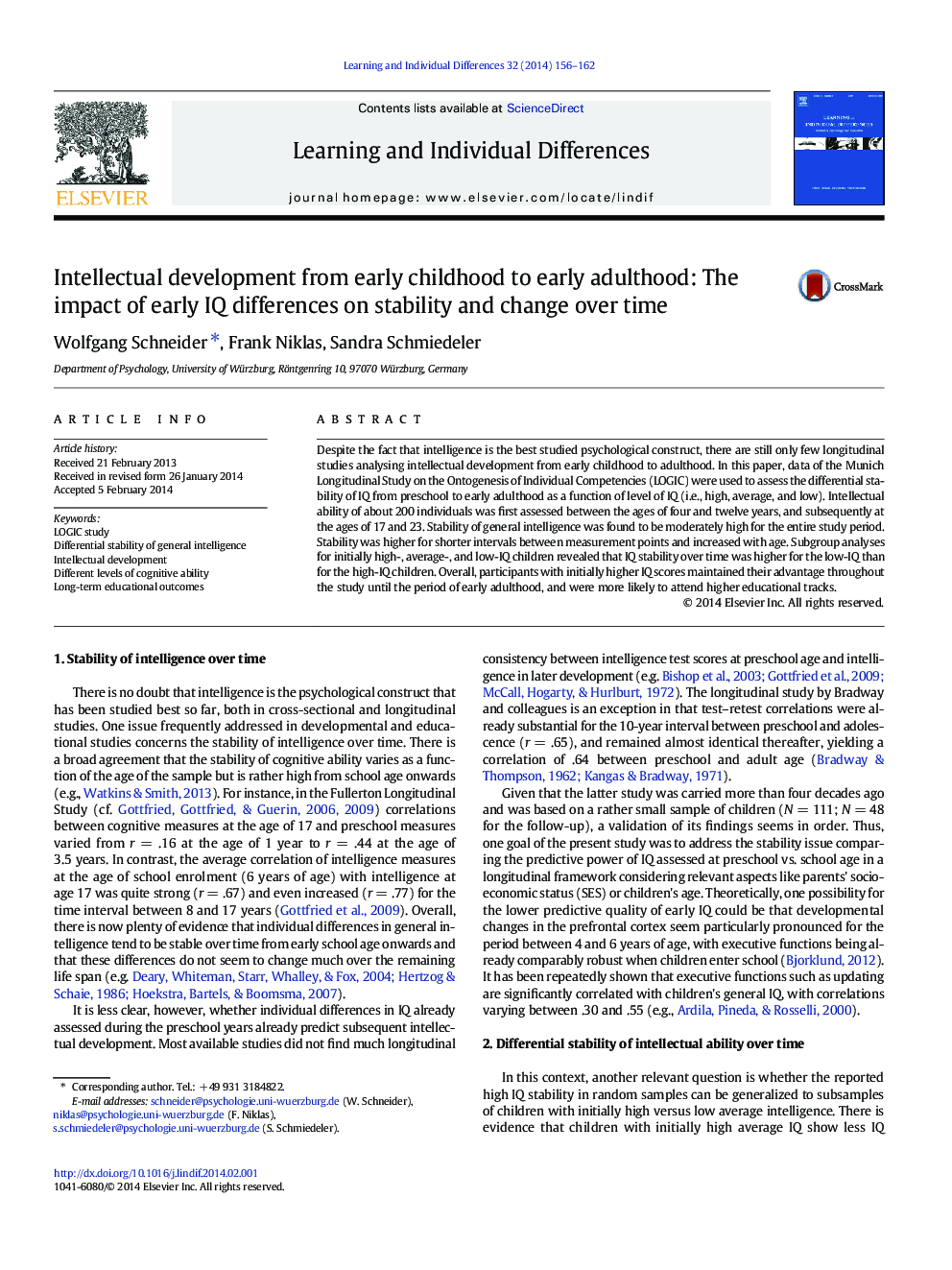| Article ID | Journal | Published Year | Pages | File Type |
|---|---|---|---|---|
| 6845121 | Learning and Individual Differences | 2014 | 7 Pages |
Abstract
Despite the fact that intelligence is the best studied psychological construct, there are still only few longitudinal studies analysing intellectual development from early childhood to adulthood. In this paper, data of the Munich Longitudinal Study on the Ontogenesis of Individual Competencies (LOGIC) were used to assess the differential stability of IQ from preschool to early adulthood as a function of level of IQ (i.e., high, average, and low). Intellectual ability of about 200 individuals was first assessed between the ages of four and twelve years, and subsequently at the ages of 17 and 23. Stability of general intelligence was found to be moderately high for the entire study period. Stability was higher for shorter intervals between measurement points and increased with age. Subgroup analyses for initially high-, average-, and low-IQ children revealed that IQ stability over time was higher for the low-IQ than for the high-IQ children. Overall, participants with initially higher IQ scores maintained their advantage throughout the study until the period of early adulthood, and were more likely to attend higher educational tracks.
Keywords
Related Topics
Social Sciences and Humanities
Psychology
Developmental and Educational Psychology
Authors
Wolfgang Schneider, Frank Niklas, Sandra Schmiedeler,
